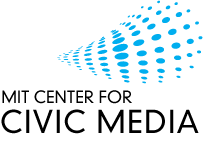
Civic Media: Knight Foundation News Challenge
On February 27, in partnership with the Ford and Mozilla Foundations, the Knight Foundation opened a News Challenge to the public with the following prompt: “How can we strengthen the Internet for free expression and innovation?” The competition culminated in the MIT-Knight Civic Media Conference, a three day event held in the MIT Media Lab from June 23-25. Of more than 700 entries, there were 19 winning projects totaling almost $3.5 million in funding. Due to the broad spectrum of projects, entries have been categorized into three categories by their approach: Access, Transparency, and Safety.
While many of the projects were geared towards domestic internet issues, some addressed many of the global concerns and public diplomacy initiatives surrounding internet censorship, such as those outlined in the briefing report recently published by Madeline Bersch and American Security Project Fellow Matthew Wallin. In fact, the second-highest funded project at the expo was TextSecure; a user-friendly mobile text communication system designed to secure text messages from surveillance. Developed by Open Whisper Systems, this application is currently only available on Android but already has hundreds of thousands of active users. After being granted $416,000 at the conference, TextSecure will hopefully disseminate into a wider range of mobile devices. If effective, this app could assist oppressed populations in expressing their ideas freely; a basic liberty to which everyone should be entitled without fear of repercussions from authoritarian governments.
The Knight Foundation also hosted a wide range of guest speakers including Susan Crawford and Carolina Rossini to contribute to the collaborative effort of the conference. Crawford is an internet activist and was the Special Assistant for Science, Technology, and Innovation Policy to President Obama in 2009. Like Crawford, Rossini is also a strong internet activist and has years of legal experience as an attorney working with issues of internet policy and international development as well as almost 7 years of work with the Telefonica Telecommunications Group in Brazil. Therefore, she discussed the Brazilian Civil Rights Framework for the Internet (Marco Civil da Internet): a progressive bill passed on April 22 promoting freedom of internet usage in Brazil. These international discussions are vital to the understanding of such efforts that are being made around the world towards promoting a more open and accessible Internet.
To learn more about the interesting presentations and projects revealed during this week’s conference, check out:
Or use the hashtag #civicmedia on Twitter.





